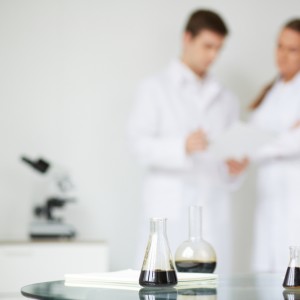Two ALS Researchers Receive Sheila Essey Award

 Robert Bowser from Barrow Neurological Institute and Adriano Chio from the University of Turin, Italy were recently awarded with the 2015 Sheila Essey Award by the American Academy of Neurology and the Amytrophic Lateral Sclerosis (ALS) Association. This award recognizes scientists’ research and contributions toward the prevention, management and eventual cure of ALS. Both researchers will receive the award between April 18 to 25, 2015 at the American Academy of Neurology’s 67th Annual Meeting, which will be held in Washington. This is the world’s largest assembly of neurologists, featuring over 2,500 scientific presentations on the latest discoveries on brain disease and over 12,000 attendees.
Robert Bowser from Barrow Neurological Institute and Adriano Chio from the University of Turin, Italy were recently awarded with the 2015 Sheila Essey Award by the American Academy of Neurology and the Amytrophic Lateral Sclerosis (ALS) Association. This award recognizes scientists’ research and contributions toward the prevention, management and eventual cure of ALS. Both researchers will receive the award between April 18 to 25, 2015 at the American Academy of Neurology’s 67th Annual Meeting, which will be held in Washington. This is the world’s largest assembly of neurologists, featuring over 2,500 scientific presentations on the latest discoveries on brain disease and over 12,000 attendees.
The award consists of a $50,000 prize to support research on ALS — a condition characterized by progressive degeneration and death of motor neurons both in the spinal cord and in the brain, which leads to muscle weakness and wasting. Those living with the disease become paralyzed and eventually pass away because of respiratory failure within three years after the symptoms appear.
Chio created the Peimonte registry to record and track several aspects of the disease, including disease progression, genetic and environmental risks, and survival rates. Chio was one of the first researchers to highlight the augmented risk for ALS in Italian soccer players as well the potential predisposition that trauma and physical activity represent in an individual’s risk for the disease.
“The Piedmont registry has shown us that ALS is not simply one disease, but rather is a collection of diseases that look the same, which is a major step forward in our efforts to develop personalized treatment and effective medications to slow down the disease. I am greatly honored and thankful to receive the Sheila Essey Award. The award is a strong motivation to proceed with even more dedication toward the goal of a world without ALS,” Chio said in a press release.
Dr. Bowser’s research project will be highlighted as well. Bowser’s work involves identifying biomarkers of ALS in the blood and cerebrospinal fluid. Biomarkers are traits that can be assessed and measured to determine a change in a person as a result of a disease. They can also help measure a disease’s progression. “We have discovered a protein biomarker signature that distinguishes ALS patients from non-ALS patients. The findings are helping us discover new ways by which ALS may initiate, and new targets to develop drugs to treat ALS patients,” said Bowser.
“We’ve created a large bank of samples from which investigators can share samples that have been collected in the same way. This standardized way in which clinical research studies are performed have a direct impact on finding more effective treatments for ALS everywhere,” he concluded.






